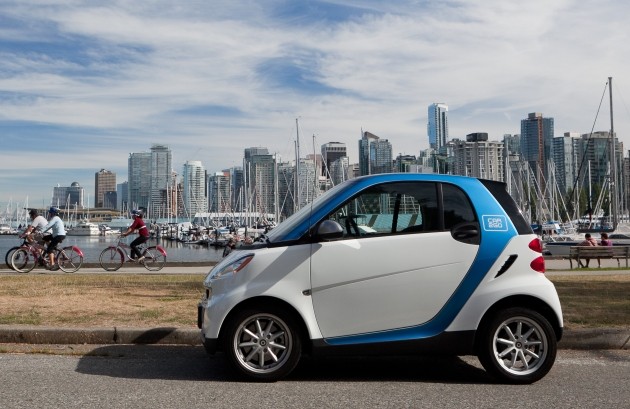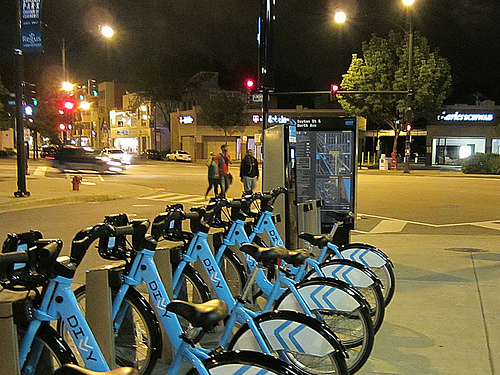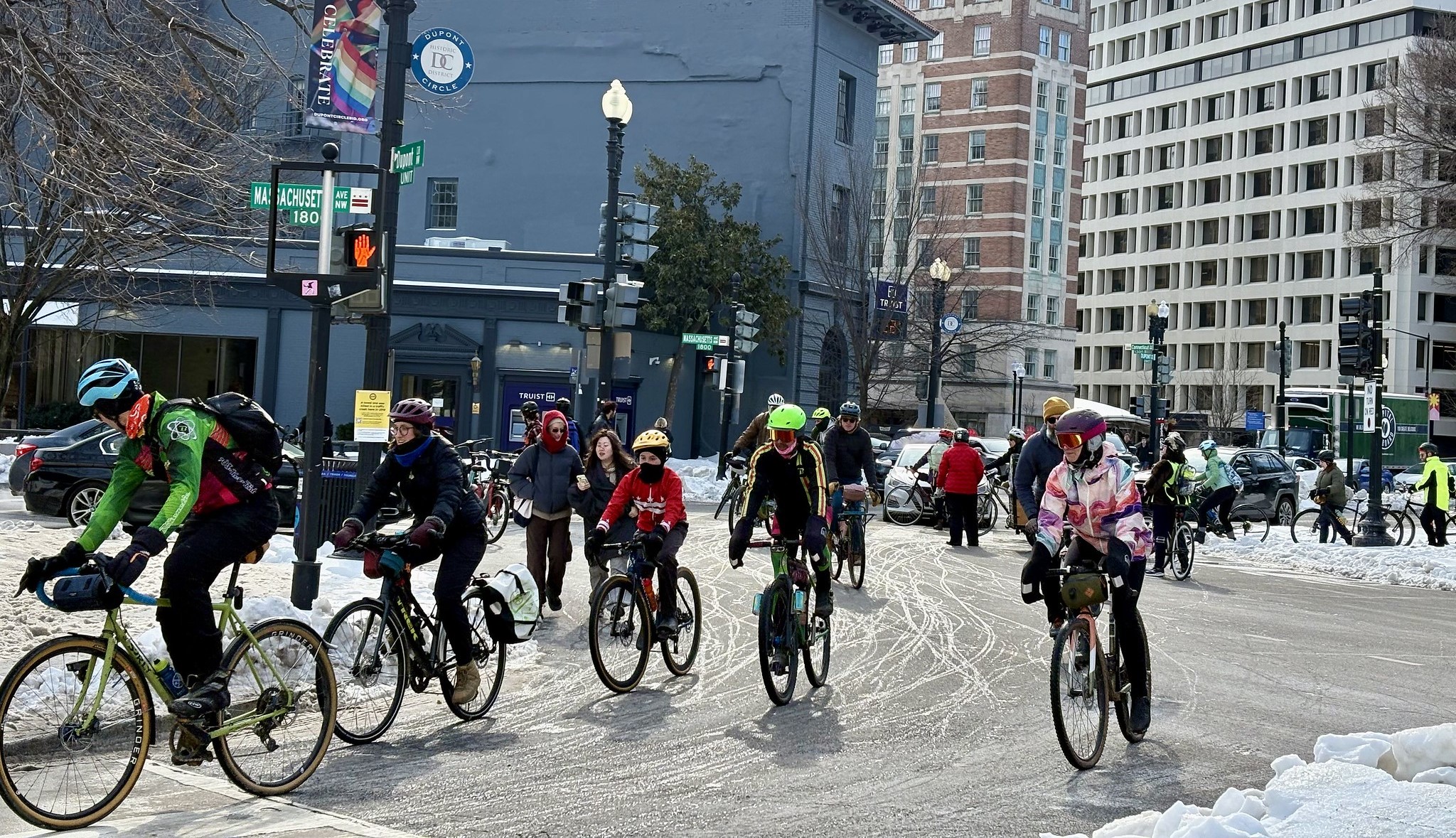Cities around the country are cracking down on ride-sharing services like Uber and Lyft, conducting sting operations and sending cease and desist letters, but that doesn’t seem to be slowing down the meteoric rise of shared transportation. The Shared-Use Mobility Center launched yesterday at a policy summit for shared-use transportation in Washington, DC.

Here are a few takeaways.
Demographic changes are paving the way for a major transportation transformation. According to John Martin of the Southeastern Institute of Research, the habit of sharing our lives on Facebook has bled into a habit of sharing assets offline. Access is more important than ownership. Collaborative consumption is frugal, ecological, and in fashion.
Sharing technologies blur the lines between public and private. Notwithstanding the outright war on Uber and Lyft mentioned above, many sharing technologies are embraced -- and even pioneered -- by government. Gabe Klein said that when he was at DDOT and launching Capital Bikeshare, they wanted to make it look more like Zipcar than a government program. “People don’t care if it’s for-profit or nonprofit,” Klein said. “They don’t even care if it’s Uber or the bus. Particularly younger people.” And cities have helped pave the way for car-sharing, providing permanent parking spaces and waiving rental taxes that would have been prohibitive -- an $8.00 tax on a $7.00 ride. RideScout, which opened in 69 cities this week, shows people all their transportation options -- public, private, active and otherwise -- on their phones. “It tells them: Is it cheaper? Is it faster? Is it better exercise?” said Klein.
Driverless cars could be the next quantum leap in sharing. If autonomous technology gets to the point where it truly requires no human override, car ownership could be a thing of the past. Shared driverless fleets could serve far more people, zipping off to the next customer when one is safely delivered to her destination. “Instead of cars sitting 95 percent of the time, [they'll be] active 95 percent of the time,” Klein said. “So maybe we can get rid of those parking lanes and make those active transportation lanes -- slow lanes, bike lanes, whatever you want to call them. We have a real opportunity -- public and private working together -- to claim that space.”
Car-sharing is taking cars off the road. There are about a million car-sharing members in the U.S., said Susan Shaheen of UC-Berkeley’s Transportation Sustainability Research Center. While some studies estimate that up to 32 cars are taken off the road with every car-sharing vehicle, Shaheen’s research has yielded more cautious numbers. “Between nine and 13 vehicles are removed -- which includes postponed vehicle purchases -- when a car-sharing vehicle is put in place,” Shaheen said. “Of that total, four to six vehicles are actually sold.” It may not be 32, but “I have never seen anything have this kind of impact on behavior,” she said. “It’s stunning.” Fifty percent of respondents in her 7,000-person study said they had either delayed purchasing a car or had sold a car.

Bike-sharing complements transit. There are over 800,000 shared bikes in 712 cities around the globe -- 56 cities with IT-based systems in the U.S. with over 20,000 bikes and 2,000 stations. “Bike-sharing is starting to alleviate pressures on transit demand in the urban core, and in the suburban periphery, it’s actually bringing people to public transit,” Shaheen said. “So it’s doing exactly what we want it to do.” As Luann Hamilton of CDOT said, bike-sharing helps transit solve the “first- and last-mile problem.” Nearly every CTA station now has a Divvy bike-share station within a block. “Bike-share is transit,” Hamilton said. “Treat it as such.”
If you're going to do bike-share, do it right. Stations need to be within a block of destinations or people will give up, Hamilton said. Chicago also had to resist the political pressure to put Divvy stations in each of the city’s 50 wards. “It wouldn’t have been a successful launch if we’d tried to do that,” she said. Instead, they focused in areas of the greatest residential and employment density. And complementary infrastructure was key -- that’s why Chicago is building 100 miles of protected bike lanes. “It’s really chicken and egg between whether you have bike lanes and the bike-facilities in place and the bike-share system,” said Linda Bailey of NACTO. “You need both of them to get to scale.”
Social equity is still an issue. Shared mobility is heavily dependent not just on technology but mobile technology. So the digital divide leaves out many people who might be ideal candidates for shared transportation. Bike-share members, specifically, tend to be wealthier, whiter, younger, more educated and more male than the general population.





